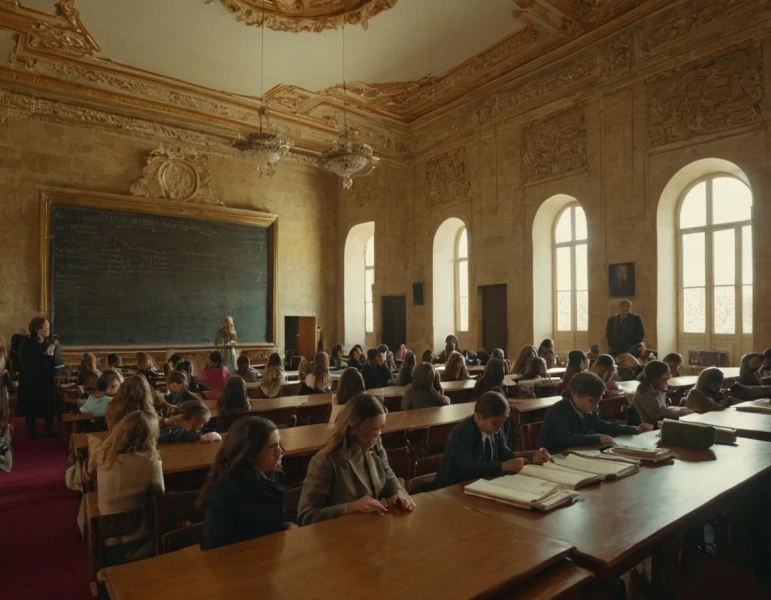Educa UNIVERSITY|EDUCATION
Ministry of Education Spain: a view from personal experience
Related Masters
Ministry of Education Spain: a view from personal experience
I am Carlos Hidalgo, and if I have learned anything in my life, it is that education is the fundamental pillar that builds a society. Since I was a child, my parents always told me: "If you want to go far, learn to understand the world". That phrase, although simple, is the reflection of what the Ministry of Education in Spain tries to guarantee to every citizen: a quality education, egalitarian and adapted to the challenges of each era.
Over the years, I have had several experiences related to this institution: as a student, as a teacher and even as a parent concerned about the educational future of my children. Today I want to tell you what I have learned about this body and how it impacts our lives.
What is the Ministry of Education in Spain?

In a nutshell, the Ministry of Education is the heart that pumps the educational guidelines of the country. It is in charge of designing, coordinating and supervising everything related to education, from the infant stage to vocational and university education.
- Main responsibilities:
Designing the school curriculum.
Management of scholarships and study grants.
Promotion of educational research and innovation.
Promotion of inclusion and equity in the classroom.
- Internal organization: The Ministry does not work alone. Its structure includes several key departments such as the Secretariat of State for Education and VET, which coordinates aspects such as Vocational Training, and the Undersecretariat of Education, which is in charge of resource management and regulations.
(Here's a fun fact: Did you know that they also oversee mobility programs such as Erasmus? Yes, those unforgettable experiences that many of us have lived in other countries have their roots here).
My experience as a student
In the 80s, when I was attending school, the Spanish education system was in full transition. It was the time of the LOGSE, an ambitious attempt to modernize education. Although it had its critics, I have to recognize that it allowed kids like me, from humble backgrounds, to have access to a comprehensive education.
I remember with gratitude the scholarship programs implemented by the Ministry. Without those aids, I would never have been able to pursue my university studies. And that, dear reader, is one of the things I value most about this agency: not only do they design policies, but they really change lives.
My time as a teacher
Entering the world of teaching allowed me to get to know the other side of the coin. Although I always admired the work of the Ministry, I also understood its challenges.
For example, the educational reforms. In the last 20 years, Spain has gone through several educational laws: LOGSE, LOE, LOMCE and now LOMLOE. Each one brought new approaches, but also generated tensions in the classroom. As a teacher, it was a constant challenge to adapt to the changes and make sure students were not left behind.
Another key point is access to resources. Although the Ministry works to equip schools with technology and teaching materials, the reality is that it does not always reach all regions equally. This is where the crucial role of the autonomous communities, who directly manage education in their territories, comes in.
My perspective as a parent
Now, as a parent, my view is even more critical. I have seen how the Ministry has implemented measures to encourage inclusion in the classroom. My youngest son, who has dyslexia, has received specialized support thanks to programs promoted by this institution. However, I also note that there is still a long way to go, especially in teacher training to address diversity.
And speaking of diversity, what a breakthrough that students can now study in several languages! Bilingual programs and the promotion of foreign language learning are an example of how the Ministry is betting on preparing future generations for a globalized world.
Challenges and opportunities for the Ministry of Education
Like any agency, the Ministry has challenges ahead. Digitizing classrooms, improving teacher salaries and combating school dropouts are just a few of them. But I also see huge opportunities:
Education for the 21st century: The inclusion of technologies such as artificial intelligence can transform the way we teach and learn.
Better equity: Ensuring that all students, regardless of their background, have access to the same educational opportunities.
Connection with the labor market: Strengthen Vocational Training to adapt it to current demands.
Final reflection
Spain's Ministry of Education is not perfect, but it is essential. Throughout my life, I have seen how its policies have impacted millions of people, including me and my family. That's why, although some criticize its decisions, I firmly believe in its role as an engine of social change.
If there is one thing I can advise you to do, it is to get to know how this agency works. Not only to understand how it affects your life, but also to demand that it fulfills its mission: to build a better future for all.
Faculties
Trainings
The faculties embrace diverse academic disciplines and fields of study, opening doors to new perspectives and exploring different spheres of wisdom in a constantly evolving world.














